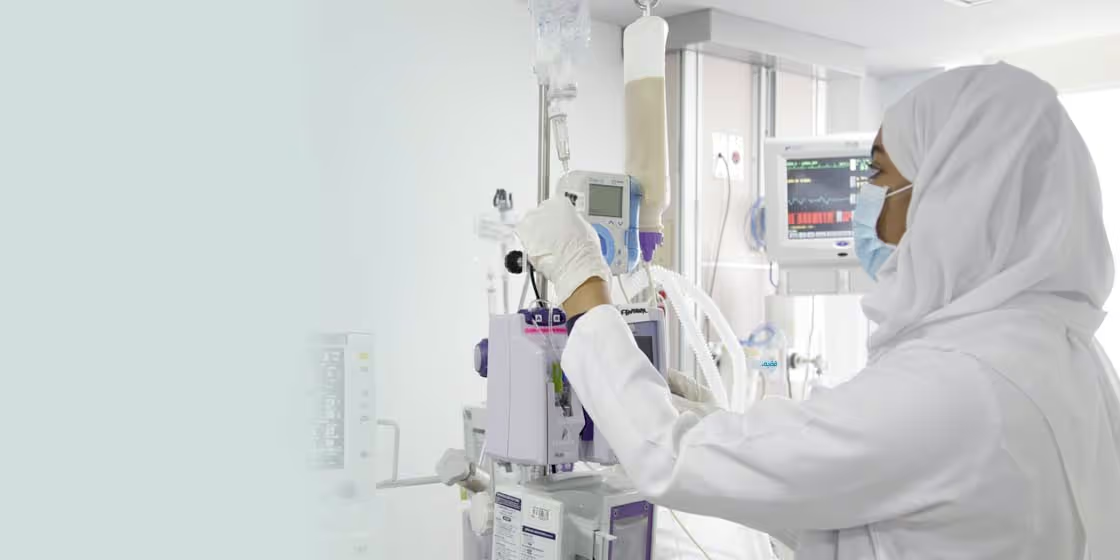Before you continue
By clicking “Accept All”, you agree to the storing of cookies on your device to enhance site navigation, analyze site usage, and assist in our marketing efforts.

The Master of Science in Critical Care Nursing (MSNC) program is designed for registered nurses seeking a specialist qualification in Critical Care Nursing. It prepares future leaders to deliver safe, evidence-based care to critically ill patients and contribute to the field through research and scholarly activities. Graduates will provide ethical, holistic, and culturally sensitive nursing care in Critical Care Nursing and related education and research.
The MSc Critical Care Nursing program aims to adopt student-centered learning approaches by utilizing various interactive strategies throughout the curriculum. The program is delivered through integrated learning methods, including:
Through direct and indirect assessment methods.
Direct assessment methods include:
Clinical assessments including, but not limited, the following:
Indirect assessment includes:
Upon successful completion of the requirements for the Master's in Critical Care Nursing Program, graduates can apply for a “Nurse Specialist” license from the Saudi Commission for Health Specialties (SCFHS). Nurse Specialists may work in hospitals, clinics, community health settings, and research institutions. Additionally, graduates may pursue specializations to advance their careers through postgraduate doctoral studies. Furthermore, they will possess the knowledge, skills, and values necessary to apply for academic positions such as “Lecturer” or “Clinical Instructor.”
A nurse specialist will be responsible for conducting and analyzing a variety of critical care assessments using advanced equipment. Results will be reported to the physician, and the data provided will play a major role in diagnosing and treating various medical conditions and monitoring disease processes. Critical care encompasses different areas, including the ICU, CCU, emergency, and recovery. With additional training and experience, a nurse specialist can advance to become a department leader or lab manager and participate in scientific medical research.
All students are invited and encouraged to meet regularly with career counselors assigned by the Student Career and Alumni Unit (SCAU). Student career counseling is a process that helps students understand their skills, abilities, and interests, and how these relate to the workplace, enabling them to make informed decisions about their future career paths. It is a dynamic and collaborative process between a faculty staff member and a student, focusing on the student’s needs and goals.